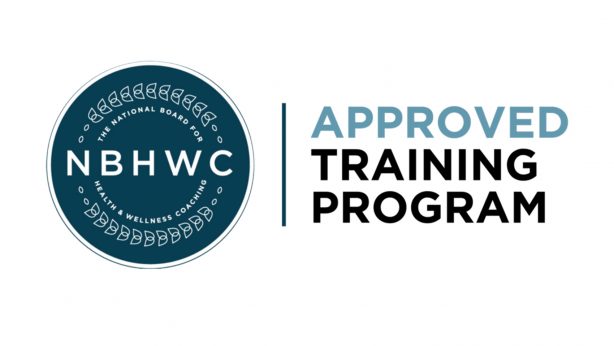
“ Everyone is pregnant with death. Everyone needs it. Near death we all have the same chance. We all have the chance to become our total selves.” (Duff, 1993) But why wait till the last days of our life to become our true self. As I lay in my deathbed, I would not want to reflect on a life not well lived with a disconnected inner self. Therefore successful aging for me would involve the psychological side of aging, including self-concept, social relationships and cognitive processes. (Moody, 2010)I would like to have lived a conscious full life that consists of: positive relationships with other people, autonomy and self-determination; mastery of surrounding environment; belief that gives purpose to life; and a sense of personal growth and development over the life course. (Ruff, 1989 as sited in Moody, 2010) As I lay in my deathbed, I would like to be surrounded by chatter of my children and my grandchildren, smiling and feeling contentment. I would like to be held by and feel the touch of my life partner who truly loves me in spite of my flaws and deficiencies. I will like to smell and experience all the warmth, festivities, vibrant culture and color associated with my Indian heritage.
 No matter how profound my death appears in my imagination, I cannot however possibly discount encountering illness and disease as I progress into my old-old age. Isn’t old age and disease synonymous? My recent study of illness has exposed me to the concept that our souls are much older than our bodies and with several reincarnations; our soul has accumulated positive as well as negative experiences, according to the Karmic Law of Cause and Effect. All souls have experienced pollution, deformation, fragmentation and injury through individual as well as collective Karma. (The Soul, 2011) Hence, no matter how well I eat or live a holistic life – in mind, body and spirit -, I am bound to encounter some form of illness as I age. By a careful review of my family history, it appears that I may be genetically predisposed to have high blood pressure, arthritics and some acute episodes of dementia. My perception towards my impending illness in my last days however would not be of total despair. I would like to experience my illness as a stage of transformation (Duff, 1993), learning and heightened spiritual awakening with extraordinary revelations.
No matter how profound my death appears in my imagination, I cannot however possibly discount encountering illness and disease as I progress into my old-old age. Isn’t old age and disease synonymous? My recent study of illness has exposed me to the concept that our souls are much older than our bodies and with several reincarnations; our soul has accumulated positive as well as negative experiences, according to the Karmic Law of Cause and Effect. All souls have experienced pollution, deformation, fragmentation and injury through individual as well as collective Karma. (The Soul, 2011) Hence, no matter how well I eat or live a holistic life – in mind, body and spirit -, I am bound to encounter some form of illness as I age. By a careful review of my family history, it appears that I may be genetically predisposed to have high blood pressure, arthritics and some acute episodes of dementia. My perception towards my impending illness in my last days however would not be of total despair. I would like to experience my illness as a stage of transformation (Duff, 1993), learning and heightened spiritual awakening with extraordinary revelations.
 As I approach a time when death appears imminent and certain, what end of life decisions would I make? Would the pain and suffering be so unbearable that I may be forced to consider physician-assisted suicide? (Moody, 2010) Would I have a living will expressing my wish for euthanasia if I were to be in a life-threatening situation (Moody, 2011) or would I succumb to a vegetative state of being? Or will I chose to surrender myself to my destiny and experience all the pain and suffering until my last breath? The possibility of having control over our own death by predefining the dying process sounds unnatural but does provide some solace since it provides an opportunity to escape end-of-life sufferings.
As I approach a time when death appears imminent and certain, what end of life decisions would I make? Would the pain and suffering be so unbearable that I may be forced to consider physician-assisted suicide? (Moody, 2010) Would I have a living will expressing my wish for euthanasia if I were to be in a life-threatening situation (Moody, 2011) or would I succumb to a vegetative state of being? Or will I chose to surrender myself to my destiny and experience all the pain and suffering until my last breath? The possibility of having control over our own death by predefining the dying process sounds unnatural but does provide some solace since it provides an opportunity to escape end-of-life sufferings.
Raised as a Hindu, I have a firm belief that with each life birth, we are meant to learn lessons and if we don’t, we are constantly reborn. (Sivananda, 2003) In Buddhism, the state of mind at the time of death is regarded as extremely important, because this plays a vital part in the situation one is reborn into. This is one reason why suicide is regarded in Buddhism as very unfortunate, because the state of mind of the person who commits suicide is usually depressed and negative and is likely to throw them into a lower rebirth. Also, it doesn’t end the suffering; it just postpones it to another life. (Death and Dying, Hawter)
With my firm belief in reincarnation and the laws of Karma, suicide – assisted or otherwise – is not an option. I imagine myself living in acceptance of the illness to the best of my capabilities in my last days or years. I want to experience the transformation and life lessons revealed through my illness and sufferings. However, I would like to have a personal will that states donating each and every functional body organ that could be useful to another human being in need if I were to ever die due to a traumatic accident or land up in a vegetative state of being. Also, in my will, I would like to clearly state that I would not like to be kept alive on artificial nutrition and hydration (Moody, 2010) and be allowed to die the natural course of death.
 It is said that when you die, your entire life flashes before your eyes. If that is so, what would I remember the most and what would I miss the most when I no longer exist? I will miss the healing loving touch of another person and making love. I will miss the intimate moments of both happiness and sadness shared with loved ones. I will miss my children, spicy Indian food, laughter, nature, my yoga practice and meditation, and the sheer mystery of the unknown. But all is not lost. I can take solace from my belief that I would be reborn again and hence I won’t really be dying in the true sense – I will be able to feel and live again, only the next time would be in a different body. Also, knowing what I will miss the most when I am gone, only reiterates that I need to be fully present and conscious of my being and relish these wonderful life moments to the fullest.
It is said that when you die, your entire life flashes before your eyes. If that is so, what would I remember the most and what would I miss the most when I no longer exist? I will miss the healing loving touch of another person and making love. I will miss the intimate moments of both happiness and sadness shared with loved ones. I will miss my children, spicy Indian food, laughter, nature, my yoga practice and meditation, and the sheer mystery of the unknown. But all is not lost. I can take solace from my belief that I would be reborn again and hence I won’t really be dying in the true sense – I will be able to feel and live again, only the next time would be in a different body. Also, knowing what I will miss the most when I am gone, only reiterates that I need to be fully present and conscious of my being and relish these wonderful life moments to the fullest.
As a activity, I will suggest that you list 7 things you will miss most when you are no longer alive. You will be surprised what surfaces and how that changes the way you look at your life. Do share your thoughts and comments. More soon!


